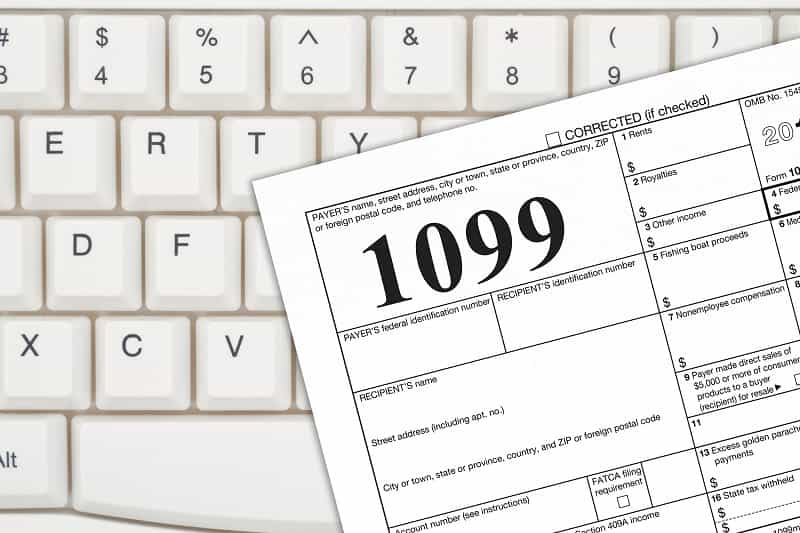1099 vs W-2 Employee: Filing Your Taxes

Filing taxes is one of the most stressful events of the year, no matter who you are. Tax time is particularly stressful if there are things you’re not sure about, though.
For example, understanding whether you need a 1099 vs W-2 can be a difficult thing to do. It’s important that you understand your tax situation, though, because there could be penalties from the IRS if you file an inaccurate return.
We’re going to look at the difference between a 1099 worker and a W-2 employee, giving you some insight into the corresponding tax forms. We hope the ideas above give you some guidance as you work through your taxes.
Let’s get started.
Table of Contents
ToggleFiling Your Taxes: 1099 vs W-2
The difference between these two tax forms is the line of work of the person who gets them. More specifically, the nature of your work and your employment status determines whether you get a 1099, W-2, or both.
What Does a 1099 Entail?
We’ll start with the 1099. Someone who receives a 1099 tax form doesn’t have a single employer. Instead, they might have numerous employers or work on a gig basis to complete jobs without having a “full-time” employment status.
These individuals include freelancers, independent contractors, consultants, gig workers, contractors, musicians (in many cases), and more. Many people who consider themselves to be “self-employed” should expect to receive a 1099 at the end of the year.
It’s also important to note that you’re owed a 1099 form if you’ve completed more than $600 worth of work for a single entity. If a person or business doesn’t pay you more than $600 over the course of the year, you’re required to claim those taxes on your own.
Many times, the freelancer receives untaxed income and has to factor those taxes into their budget. Depending on the line of work you do, you should set aside roughly 10-15% of your untaxed income to account for 1099 taxes.
You should also keep a close eye on all business expenses, as you can typically write business expenses off on your taxes. A service like efile360.com can help you organize those expenses and file your 1099 taxes the right way.
What About a W2 Employee?
Anyone who works for a particular business and performs an indefinite amount of work for numerous hours per week. This is the standard employee. Most people fall into this category and are used to receiving W-2s from employers at the end of the year.
Most employers take taxes out of the check before the employee receives it. This makes things a lot easier at the end of the year. Because taxes get taken out, individuals who overpay their taxes get a refund.
Many individuals receive large refunds at the end of the year. If you’re someone who receives a W-2, odds are that you only need that form to complete your taxes.
Ready to File Your Taxes?
We hope our look at the 1099 vs W-2 was useful to you. There’s more to learn about doing your taxes the right way, though. We’re here to help with more ideas and insights.
Explore our site for more financial insights, ideas on improving your career, health ideas, and a whole lot more.
Alfred Williams, a distinguished business writer, navigates the corporate landscape with finesse. His articles offer invaluable insights into the dynamic world of business. Alfred's expertise shines, providing readers with a trustworthy guide through the complexities of modern commerce.
Recommended For You
Spread the loveThe name Broderick Bevineau makes you think of new ideas and starting your own business. Bevineau has made
Spread the loveThe popularity of Airbnb has paved the way for many entrepreneurs to build businesses in the short-term rental
Spread the loveCreating a well-designed and functional website starts long before coding begins. The prototyping phase is a critical step




